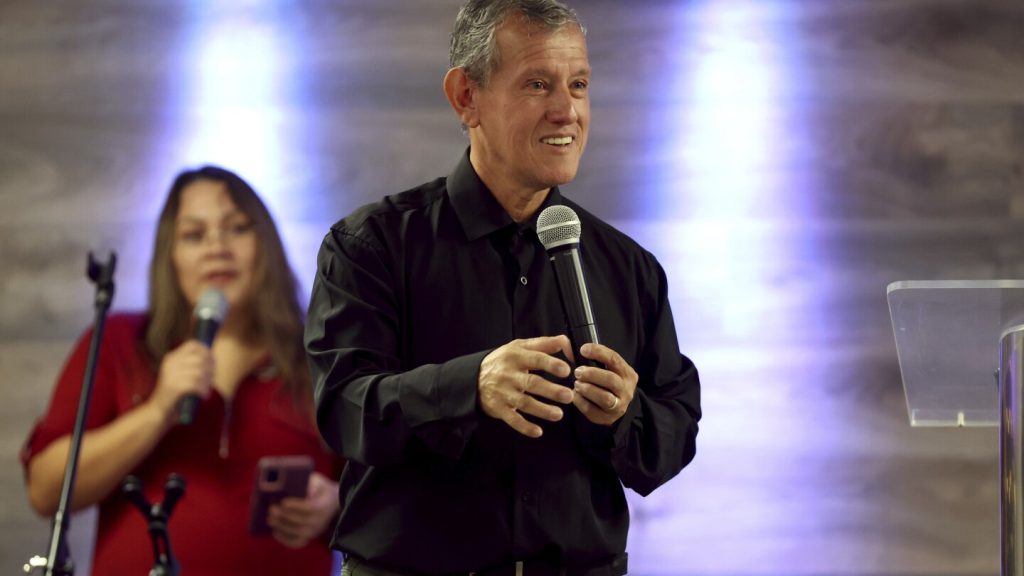The Rev. Arturo Laguna leads a church of about 100 followers in Phoenix, primarily made up of immigrants. As the pastor of Casa de Adoracion, Laguna faces challenges during election seasons, particularly in states like Arizona, which are crucial swing states. The Latino evangelical community in the U.S, of which Laguna’s congregation is a part, views voting as a matter of faith and spirituality rather than just an intellectual exercise. This dilemma is not new for Latino evangelicals, who are growing in numbers while white Protestant denominations are declining. Both political parties have attempted to appeal to this influential voting bloc with varying degrees of success in recent election cycles.
Despite Latino evangelicals being the fastest-growing group among American evangelicals, their political preferences are split. While the majority of U.S. Latinos tend to support Democratic candidates, a significant number of Latino evangelicals backed Donald Trump in the 2020 election. The conflicting priorities of this group, torn between conservative views on social issues like abortion and concerns about immigration and criminal justice reform, leave many feeling politically homeless. The failure of both parties to effectively address these issues has resulted in a sense of discontent within the Latino evangelical community, leading to a lot of silence in political discourse.
Some leaders in the Latino Christian community, like Agustin Quiles of Mission Talk, highlight the difficulties faced by Latino evangelicals as they navigate their political stances. The origins of Latino evangelicals, shaped by a desire to establish new communities and families in the U.S, have led them to align with conservative evangelical churches. However, as they become more pro-immigration, they find themselves at odds with their white evangelical counterparts. The increasing dissonance between the pulpit rhetoric and the perceptions of the congregation further complicates the political landscape for Latino evangelicals.
As the 2024 election approaches, Latino evangelical leaders like the Rev. Juan Garcia of Virginia and the Rev. Jacqueline Tavarez of North Carolina emphasize the importance of values over political affiliations. They stress the need to focus on the impact of political decisions on communities rather than just the personalities or voices within parties. The diverse concerns of Latino evangelical congregations, ranging from jobs and education to family values and community welfare, indicate a complex set of priorities that require nuanced political engagement. The Rev. Lori Tapia and Bishop Angel Marcial also underscore the need for compassionate politics and progress on critical issues within the Latino evangelical church.
In key swing states like Nevada, Latino evangelicals play a significant role in shaping electoral outcomes. The diverse political views within this community are influenced by factors like immigration reform, social justice messages, and economic stability. As pastors like Willie Pagan in North Las Vegas highlight, the economy, immigration, and safety are top concerns for congregants, leading to a mix of conservative and liberal leanings within the Latino evangelical vote. Political engagement in these communities occurs organically, driven by the values of the church and the needs of the people, rather than by specific party affiliations or endorsements.
The complexities and challenges faced by Latino evangelicals in navigating the political landscape reflect a broader trend within the larger Latino community in the U.S. As these diverse voices continue to shape the electoral landscape in crucial swing states, the attention and engagement of political leaders and parties becomes vital. The 2024 election presents an opportunity for Latino evangelicals to assert their priorities, values, and concerns, ultimately influencing the direction of the political discourse and policy decisions in the country.


